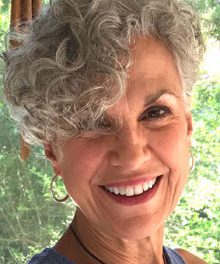 To date, I’ve never met anyone who doesn’t have at least one regret. An “if only” worthy of a do-over. Many of us have lots, which we often enumerate at least mentally so frequently that residing in the past has become a habit, no matter the time that has elapsed since the “transgression.”
To date, I’ve never met anyone who doesn’t have at least one regret. An “if only” worthy of a do-over. Many of us have lots, which we often enumerate at least mentally so frequently that residing in the past has become a habit, no matter the time that has elapsed since the “transgression.”
One word for this condition is “angst,” and it’s a sad state to spend time in, much less actually live in. The past is a fine place for a short visit, to savor fond memories, to discover lessons learned, but not a location for one to set up permanent residence. That sly self-critic would no doubt like for you to spend a lengthy vacation there wearing nothing but the proverbial hair shirt.
To those so clad, the causative error(s)/sin(s)/miscalculation(s) seem the size of the Rock of Gibraltar, whether the “crime” was choosing to spend an evening with friends instead of attending a memorial service and later lamenting the choice, forgetting to pick a child up after school due to an unforeseen urgent situation elsewhere, or a grievance far more heinous. Those are certainly tougher to forgive oneself for and move past. But that’s also doable, with the right tools. The emotional kind.
Recently, I took an OLLI class called “How to Live with No Regrets,” taught by Beaufort psychiatrist Dr. Jeff Black. The concept intrigued me. Initially, he enumerated five regrets of the dying. All begin with “I wish I had…”
- been true to myself;
- not worked so hard;
- expressed my feelings;
- kept in touch with friends; and
- let myself be happier.
Wouldn’t we all enjoy life more fully without feeling guilt, especially the long-term sort? I believe that the tools I learned about in this class can certainly help that process.
First, a bit of background. Jeff referenced The Living & Dying Consciously Project based in Boulder CO. This remarkable nonprofit’s mission is to empower people to live consciously through life’s passages, including loss, aging, and dying; to breathe new life into traditional rituals to give those meaning in today’s world; and to develop a conscious community of teachers, caregivers and health professionals who will offer ceremonies, meditations and workshops in their own communities.
Stay with me here. That project’s offspring is the No Regrets Project, begun by Boulder resident Patti Pansa, an experienced life coach and catalyst for positive change who lived life fully. When she was diagnosed with Stage IV breast cancer, Patti’s desire to arrive at the transition from this life to the next with no regrets led to the engraving of five simple, strong statements on metal bracelets to remind folks who wear them to connect to what’s truly important in their lives, and in so doing, to perhaps release the guilt connected with regret.
Those five statements, i.e. tools, which were the basis for Jeff’s class, make such sense. All sound simple, which they are, yet all require a measure of inner strength. Translate: implementing those concepts can be tough at times, but oh, so worthwhile. Here you go:
- Be grateful every day. No matter what’s going on in your life, there’s always something – actually, lots of somethings – to be thankful for. As Dr. Black said, “Living through a lens of gratitude and wonder can create positive chemical changes in the body.”
Either first thing in the morning while sipping your daily cuppa joe or last thing at night before you slide beneath the covers, list five things that you’re glad are in your life. As a cum ya resident of this lovely Lowcountry, I can tell you that no matter how my day is going, all I have to do is step outside and the gorgeous trees, moss, water, beaches, wide skies, and boats bobbing in the marinas all remind me, But look where I live. And my mood perks up immediately.
- Choose joy. When things are tough, it’s hard not to focus on the negative. But the energy you emit comes back to you, and the longer you fixate on what’s not working, the more time it’ll take to shake that negative feedback. Keeping a daily journal of activities, accomplishments and feelings can help you see how far you’ve come. Life happens a step at a time, a day at a time. Do your best to follow spiritual teacher Ram Dass’s advice, “Be here now.” The more you stay in the present moment, the wider life will open for you and the more possibilities you’ll be able to realize.
Should you desire further info on staying present, Eckhart Tolle’s book The Power of Now could be the ticket.
- Trust – Take the risk. Is there something you’d really like to do but have fear about it? If you have the physical capacity to do it, what the hey? Think how proud you’ll feel when you accomplish it, so prepare first, and even if you can’t quite manage, at least you tried. You might even be able to take a real do-over.
One of my high school classmates decided that to celebrate her 60th birthday, she was going to enter and run the Paris Marathon. Yes, thatParis…across the pond. Her big day was in March, and she and a friend hired a trainer the preceding September. Keep in mind that Kaye – mother of four grown kiddos – is not an experienced runner and has had diabetes for years. But when she decides to do something, it’s gonna happen. And it did. They and their husbands both went to Paris to cheer on their ladies.
“They were taking down the finish line by the time we got there,” she texted, “but we ran and walked and FINISHED!”
By the way, taking a risk can also be apologizing for an “oops” in a past relationship.
- Have the courage to be me. Being yourself can be difficult if those around you, whose opinions you value, criticize some part you’ve expressed of who you are. For teens, bucking your friends can be especially hard. Once you determine that a particular behavior or lifestyle or – the really challenging one – personno longer serves you, i.e. works in your life, let it go. Write about it, conduct a small ceremony, do whatever it takes to break that connection. And move on to embracing what does work.
To quote Patti Pansa, “It’s about choosing how you want to live your life… really choosing.”
Love myself & share it. If you don’t love yourself, it’s virtually impossible to truly love another person. As stated above, being brave enough to love who you really are, release regrets, and accept yourself, foibles and all, can enable you to have the confidence to share your love. Numerous ways you can release regret, grief and/or trauma include concentrating on a mantra in meditation, praying, being in nature, and spending time with like-minded people.
“Expand yourself beyond your comfort zone,” Black said. “Get deliberate about setting a new standard, and walk away as a person without a past.”
Find out more about The Living and Dying Consciously Project and The No Regrets Project at www.livingandyingconsciouslyproject.org. And by the way, OLLI is USCB’s terrific continuing ed program, short for Osher Lifelong Learning Institute, for folks 50 and over. Check it out at https://olli.uscb.edu)





